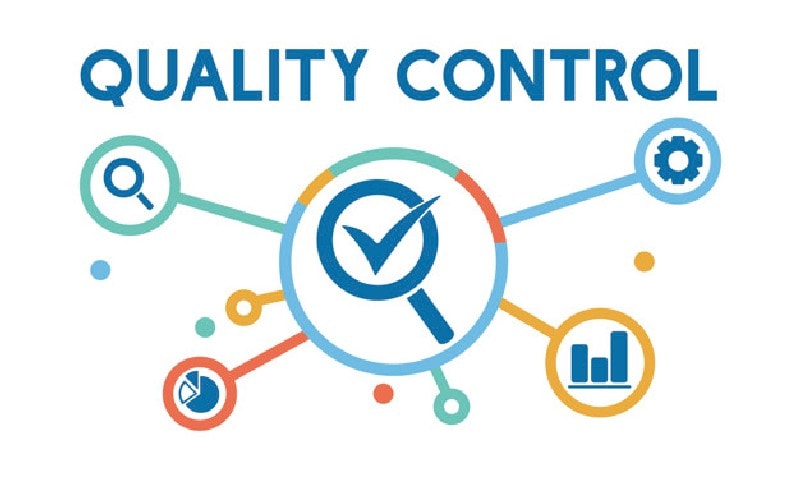
The Importance of Project Management

Project management is a crucial process that facilitates the successful accomplishment of project goals through effective policies and principles It promotes strategic collaboration, realistic planning, clarity in objectives, leadership development, managed processes, quality control, and continuous tracking
Achieving the goals of a project involves following a set of policies and principles, which is what project management is all about. From start to finish, it guides the project through the stages of initiation, execution, planning, and completion, ensuring that the desired objectives are met within the designated timeframe. The project is documented at the outset, with all relevant information shared and described in detail to facilitate the development process.
One cannot overstate the importance of project management in planning, monitoring, and organizing a project within budget. It navigates the project through obstacles and setbacks, ensuring that it stays on track and is completed within the deadline. Project management takes into account the client's objectives and brings together a well-coordinated team to ensure that everyone is on the same page, which is essential for success.
A project manager plays a crucial role in aligning goals and initiatives, managing client expectations, and ensuring the quality and timely completion of a project. This requires the application of various techniques, tools, knowledge, and skills to meet set requirements and deadlines. A comprehensive project management process involves identifying and managing risks, resource allocation, effective communication, and budgeting for all stakeholders.
1. Project management encourages strategic association
Managing a project through multiple phases is a challenging task, and project management is the key to maintaining order and ensuring that every team member is aware of their tasks, responsibilities, and deadlines from the outset. The project manager strives to minimize errors and quickly implement effective solutions when necessary.
Numerous industries have successfully implemented a project-oriented approach that has provided tangible benefits to their business. This approach has proven to be effective in driving strategic initiatives, reducing costs, and achieving desired objectives and goals, making it a significant contributor to the improvement of systems across various industries.
One of the critical advantages of project management is its ability to align the business strategy with project goals, milestones, and tasks, creating a strategic association. This alignment is crucial in keeping all stakeholders informed and engaged, ensuring that the project progresses smoothly.
The process ensures that in case of issues and risks, realignment takes place so that it completes as per the schedule.
2. Project management ensures realistic planning
Inadequate systems can lead to costly mistakes and erroneous assumptions about expenses and deliverables. Such errors can prove disastrous as both overestimating and underestimating have the potential to cause project failures. Therefore, having a reliable system in place is crucial for success.
Project management plays a crucial role in ensuring that the bigger picture is taken into account and a realistic plan is put in place. The project manager is responsible for effective communication with all stakeholders, including management and the team, to gain a clear understanding of objectives and priorities before setting achievable deadlines. Once all necessary research has been conducted and variables considered, the team collaborates to develop a comprehensive plan that factors in risk assessment, resource management, and cost estimation.
3. Project management ensures clear focus and objectives
Effective project management involves setting timelines and budgets to ensure that the client's objectives and project goals are accomplished within the specified time frame. However, it is not just about establishing these parameters. It also requires strong leadership and diligent management with realistic goals and reasonable expectations. Without these, the project is at risk of being derailed and going off-track in just a matter of days.
3. Project management ensures clear focus and objectives
In today's business environment, project management has become an essential element for success. Various industries have recognized the value of implementing structured processes to manage and deliver project objectives effectively. By using proper tools and strategies, businesses can encourage growth and expansion.
Successfully managing a project involves skillfully navigating obstacles and interruptions to ensure timely completion without compromising quality. The essence of project management lies in the ability to create a comprehensive plan at the outset and execute it effectively to achieve desired outcomes. In the past, project management was not widely recognized as a crucial aspect of successful project completion, leaving project teams to fend for themselves without clear direction or guidance. Without proper briefs and directives, projects were often directionless and prone to failure.
Thanks to the implementation of a project management system, the days of lack of focus and vague objectives causing disasters are long gone. Today, projects are better structured and have a life of their own. A clear plan is in place, with every task defined and sub-divided to avoid overburdening team members. Roles are clearly explained, and responsibilities are assigned to prevent any disputes over resource allocation or workflow. A competent project manager incorporates risk management as part of the structure, identifying potential risks and managing them quickly to keep the team focused on achieving objectives and goals.
4. Project management encourages leadership qualities
Effective project management is crucial for providing direction, purpose, and control to ensure the project progresses smoothly. A skilled project manager offers leadership and guidance, inspiring the team to give their best and meet work commitments on time. Inevitable roadblocks and obstacles must be minimized or removed to maintain uninterrupted progress. The project manager plays a crucial role in motivating and advising the team, fostering a positive working environment and encouraging success.
The manager emphasizes the importance of accountability for all members involved in the project. A strong leader is necessary to guide the team towards a common goal, and the manager takes on this role with confidence. By enforcing clear processes and delegating tasks, the manager ensures that each team member is fulfilling their responsibilities and contributing to the overall success of the project within the designated timeframe.
The project manager has the foresight to take a strong approach and differentiate between good and bad in terms of project management, and this is what makes him a true leader.
5. Project management ensures managed process
In today's dynamic business environment, project managers need to be proactive and adaptable. This requires a hands-on approach to project management, where the manager is able to anticipate potential issues and address them before they become major roadblocks. Simply reacting to problems as they arise is no longer sufficient for success in today's fast-paced world.
Effective project management involves proactive planning for both known and unknown risks, with a focus on minimizing potential repercussions. In the face of uncertainty, it is essential to be prepared for any contingency that may arise during the course of a project. This is where project management comes in - by allocating the right resources to the right tasks at the right time, project managers can mitigate risks and improve efficiency. From the outset of a project, parameters are defined, goals are set, and risks are identified and planned for. Tasks are broken down into manageable chunks and assigned based on requirements and priorities.
The importance of project management is in reacting to issues timely, directing the teams effectually to ensure managed processes throughout the lifecycle of the project.
6. Project management ensures quality control
Meeting project standards and deadlines is a challenging feat, often leading teams to make compromises in their pursuit to complete the project. However, rushing through work can result in subpar quality and without a proper project management system, the likelihood of such compromises increases.
Ensuring quality control is a crucial aspect of project management, as it involves closely monitoring the project from start to finish. Maintaining high quality standards is a key component of any successful project, even if deadlines are met and tasks are completed on schedule. Without adequate attention to quality, a project may ultimately fail, regardless of whether it meets its budget and time constraints.
The project manager has already defined the quality standards in his project plan, and he ensures that his team maintains it at all costs.
7. Project management ensures continuous tracking
Effective project management plays a critical role in ensuring the successful completion of a project. By providing continuous oversight and valuable insights from start to finish, the project team can identify and address potential challenges before they become major issues. Additionally, comprehensive documentation of every aspect of the project ensures that no important details are overlooked.
It is crucial to monitor and document progress thoroughly to ensure adherence to established directives. Any oversight can result in mistakes or blunders that could have harmful consequences. Therefore, it is important to maintain the course of the project and make corrections promptly if it deviates from its intended path to ensure success.



















